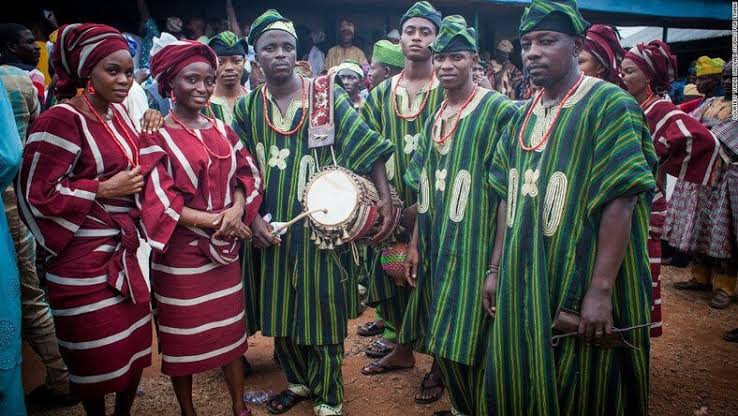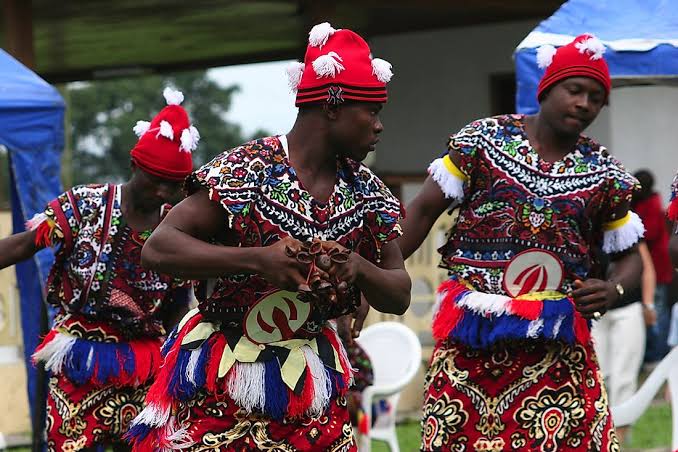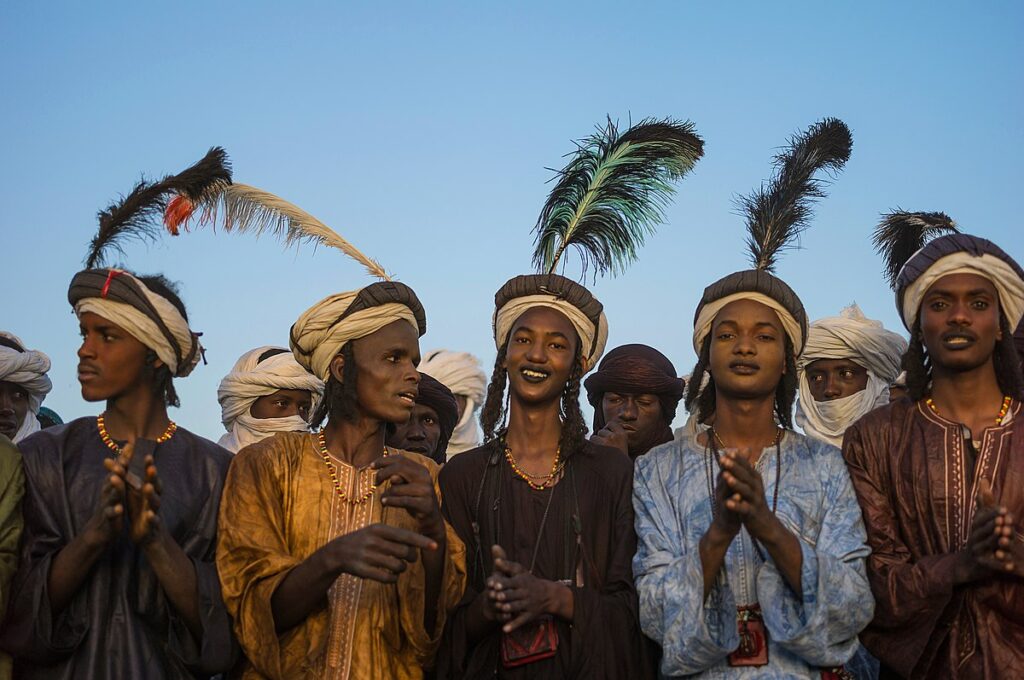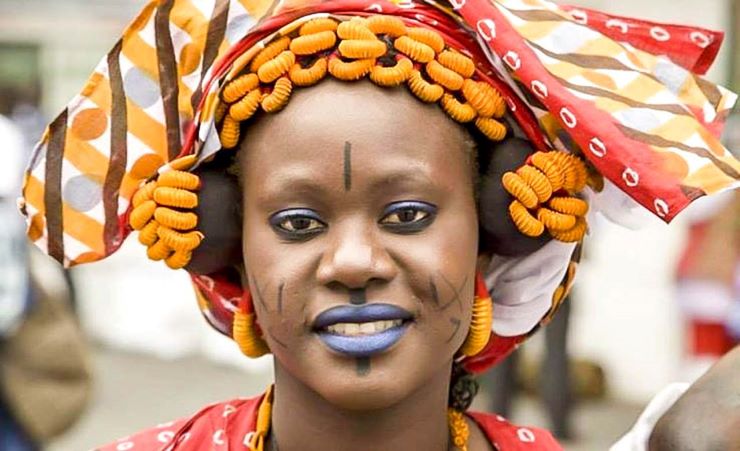The Transatlantic Slave Trade, also known as the Triangular Trade, was one of the most tragic periods in African history, as millions of Africans were taken from their homes and forced to endure unspeakable atrocities during their journey to the Americas.
While many African tribes were impacted by this cruel trade, there were some that stood out as particularly influential, either due to their significant contribution to the slave trade or their cultural and political impact on the African continent as a whole.
In this article, we will explore the top 10 African tribes with significant impact on the Transatlantic Slave Trade and examine their unique stories and legacies.
- Yoruba People
- Fon people
- Mbundu People
- Igbo People
- Bakongo People
- Fulani people
- Wolof people
- Chamba people
- Abron people
- Mende people
-
Yoruba People
The transatlantic slave trade had a profound impact on African tribes, with many being forcibly taken from their homes and sold into slavery in the Americas.

Among the most influential of these tribes were those from North Central and South Western Nigeria, as well as Southern and Central Benin Republic.
The Yoruba tribe, in particular, has become one of the most recognized African cultures not only in America but also in the UK and the Caribbean.
Despite being uprooted from their homeland, the Yoruba people have managed to maintain their cultural traditions and practices, creating shrines and worship centers in various parts of the world, such as Jamaica, Cuba, Haiti, the Dominican Republic, St. Louis, Brazil, Trinidad, and Tobago.
In fact, Yoruba culture has become so popular that it is now considered a religion, even among non-Yorubas in America.
Furthermore, archaeological evidence has revealed that the Yoruba and Benin/Edo cultures are among the oldest civilizations in Africa, dating back to as far as 11 BC during the Nimrod era.
The cultural and historical significance of these African tribes during the transatlantic slave trade cannot be understated, and their enduring legacy continues to influence and inspire people across the globe.
Fon people
The Fon people, also known as Fon nu, form the largest ethnic group in Benin Republic and can also be found in South West Nigeria.

According to oral history, they are a product of the intermarriage between the Aijaa and Yoruba tribes, creating a distinct ethnic group known as Fon.
The Fon people are well-known for establishing the Dahomey kingdom, which became one of the most prominent and powerful kingdoms in West Africa.
The Dahomey kingdom is notable for its female warriors, who were highly skilled and fiercely fought to protect their kingdom.
The Fon people, like many other African tribes, suffered greatly during the slave trade, both as victims and perpetrators.
Today, they are most popularly known in Trinidad and Haiti, where their cultural practices have been deeply embedded in the societies.
Due to their Yoruba ancestry, they are renowned for their black Juju practice, which is a form of magic or sorcery used for protection and divination in the Americas.
Mbundu People
The Mbundu people are an ethnic group primarily located in Angola.
The exact origins of the Mbundu people are unclear, but according to oral history, they are a blend of various tribes across Africa.
During the transatlantic slave trade, they were taken to Brazil in large numbers.
The Portuguese found the Mbundu people to be the most lucrative and popular in the slave trade, as they were skilled shipbuilders and architects.
This allowed them to build large ships that were used to transport their own people to Brazil, making them the largest black ethnic group in the country to this day.
The Mbundu warlords were skilled craftsmen, and their expertise in shipbuilding made it easier and cheaper for the Portuguese to transport Mbundu slaves.
As a result, the Portuguese were able to acquire Mbundu slaves more easily and in greater numbers than any other ethnic group.
Igbo People
The Igbo people are an ethnic group indigenous to the South Central and South Eastern regions of Nigeria.

They are known to be one of the largest ethnic groups in Africa, with a rich cultural heritage and a unique language.
However, their history has been marked by the devastating effects of the slave trade, which caused great upheaval in their communities.
One of the major events that shaped the Igbo people’s involvement in the slave trade was the migration of the Aro Confederacy to Igbo land.
The Aros were a powerful trade confederation that originated from the present-day Cross River state of Nigeria.
They migrated to Igbo land in search of slaves due to the high demand for them by European slave traders.
As a result of the Aros’ migration, the Igbo people were caught up in the slave trade, with many of them being hunted and sold as slaves.
It is estimated that Igbos sold to Europeans accounted for about 13% of the total number of slaves harvested from Africa.
This had a profound impact on the Igbo society, as many families were torn apart and communities were disrupted.
Despite the brutal effects of the slave trade, the Igbo people have managed to maintain their unique identity and cultural heritage.
Today, they are a vibrant and dynamic ethnic group, with a rich cultural legacy that continues to inspire people around the world.
The legacy of the slave trade, however, remains a painful reminder of the atrocities committed against the Igbo people and serves as a cautionary tale about the devastating effects of slavery on human societies.
Bakongo People
The Bakongo people are a Bantu ethnic group that inhabits the coastal regions of Central African Republic, as well as the Democratic Republic of Congo, Republic of Congo, and Angola.
Similar to the Mendenka people, the Bakongo people established one of the largest empires in Central Africa.
During the early stages of slavery, the Bakongo people were among the African tribes that embraced Christianity.
They were also among the first to have contact with Portuguese trade merchants, who established trade networks in the region.
Unfortunately, many Bakongo people were taken as slaves to southern America.
Despite this devastating history, the Bakongo people have managed to preserve their rich cultural heritage and continue to celebrate their traditions to this day.
Fulani people
The Fulani people are one of the largest ethnic groups in West Africa, known for their nomadic way of life.

They can be found in various countries including Senegal, Central African Republic, Niger, Mali, Nigeria, Guinea, and Cameroon.
Although the origin of the Fulani people is a subject of debate, their history is traced back to North Africa.
Evidence of their existence dates back to 6000 BC in Nigeria, which suggests that they were the original inhabitants of North Africa.
The Fulani people were early adopters of Islam, and their rich history includes many prominent jihadi leaders who swept across Africa.
One such example is Usman Danfodio. However, despite their influential role in the slave trade, the Fulani people were also victims of slavery themselves.
They were among the most enslaved people in Africa, with many prominent Fulani slaves taken to the New World, specifically America.
Examples include Umar Ibin-saeed, Abdulrahaman, and Dialo.
Wolof people
The Wolof ethnic group is mainly found in Senegal and some parts of Mali.

Although there are varying theories about their origin, the prevalent belief is that they migrated from the north and settled in the southern region.
They once had a powerful empire, but internal conflicts and wars eventually caused their fragmentation, exposing them to slave hunters.
Today, quite a number of Wolof people practice Islam, but their involvement in violent jihadis made them vulnerable to slavery as both perpetrators and victims.
Chamba people
The Chamba people are an African ethnic group that can be found in northern Cameroon.
They speak two languages that are distantly related, which are Chamba Leko of the Leko-Nimbari languages and Chamba Daka of the Dakoid languages, both of which are Niger-Congo languages.
During the 18th and 19th centuries, the Chamba people were among the victims of Fulani jihadi slavery.
As a result, they were forced to migrate to the mountains and form guerrilla groups to defend themselves against Fulani slave merchants.
Abron people
This ethnic group resided in the vicinity where the borders of Côte d’Ivoire, Ghana, and Burkina Faso converge.
They occupied a significant part of the region historically known as the Gold Coast.
Sadly, many of them were victims of slavery, and their descendants were given a distinct name, “Koromantis,” in Jamaica.
Mende people
The Mende language is spoken by a variety of African tribes.
While many tribes throughout Africa speak Mende, it is inaccurate to refer to Mende as a single tribe.
However, the most notable of these tribes is the Mendenka.
The Mendenka tribe established one of the largest empires in West Africa and frequently raided the coastline, intermingling with its inhabitants.
Interestingly, some Fulanis can trace their ancestry back to the Mendenka.
The Sahara region is believed to be the origin of the Mendenka, and archaeological evidence suggests that they were the first builders of stone settlements in West Africa.
From 1100 BC to 1600 BC, Mende culture was the most dominant in West Africa.
